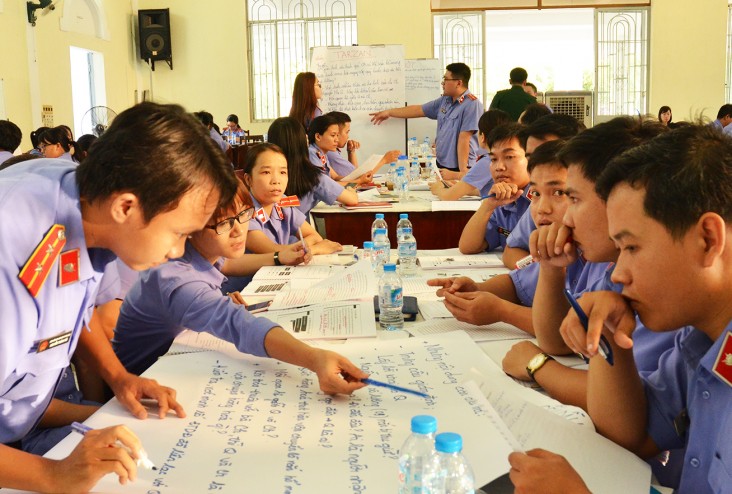Speeches Shim

The illegal wildlife trade in Vietnam is a major threat to endangered species worldwide. In the last decade, the country has seen a dramatic increase in the illegal trade and consumption of wildlife, particularly rhino horn and ivory from Africa. In response, the Vietnamese Government has made law enforcement an urgent priority. However, although Vietnam has strengthened its environmental laws, a lack of coordination between its enforcement agencies has undermined prosecutions.
“The procedures for dealing with wildlife crime, including the valuation of wildlife products and protocols for handling evidence, are inconsistent from one province to the next,” said Ms. Pham Thu Trang, Deputy Director of the Department of International Law at the Supreme People’s Procuracy (SPP) Training Academy.
This lack of coordination has meant that efforts to enforce laws have been inconsistent, preventing the development of a long-term, country-wide strategy. These challenges have been compounded by a general lack of public awareness.
“Prosecutors and government officials lack knowledge about illegal poaching and trafficking of certain animals,” said Ms. Hoang Thi Ngoc Diep, a state prosecutor.
In 2015, the USAID Governance for Inclusive Growth (GIG) Program began supporting Vietnam’s efforts to combat wildlife trafficking with the aim of improving the legal and regulatory framework and strengthening justice sector coordination and law enforcement capacity.
The USAID GIG program has worked with government partners to train more than 700 prosecutors from the Supreme People’s Procuracy, as well as 130 law enforcement officers and more than 100 judges.
The training activities were followed up by the development of a wildlife crime prosecution training manual. This manual is used by the SPP Training Academy and standardizes procedures, including steps for handling evidence and conducting investigations. As trainees pass on their newly acquired knowledge and skills to colleagues in the field, we expect the impact of the USAID program is even greater.
“A colleague asked me for help in handling evidence for a wildlife trafficking case and I was able to share examples from the training and advice on the procedural steps involved. This led to a successful prosecution,” said Ms. Diep.
Over the past two years, over 600 prosecutors and judges have been trained on wildlife trafficking issues by the USAID GIG program, including trainings on the manual.
The USAID GIG Program’s support to the Justice sector is beginning to make a real contribution to biodiversity conservation efforts in Vietnam; efforts that are essential for the country’s sustainable development and the wellbeing of its people.
This work was supported by the USAID Governance for Inclusive Growth (GIG) Program, a five-year, $42 million project that ended in December 2018. The USAID GIG Program works with the Government of Vietnam in support of trade, legal and regulatory reforms, governance, and inclusive economic growth.

Comment
Make a general inquiry or suggest an improvement.